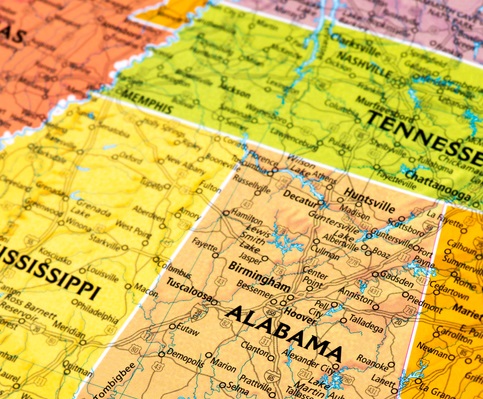
For Republicans: No More Moore
By: Richard E. Cohen, Chief Author, The Almanac of American Politics
The victory by Democrat Doug Jones in the Alabama Senate contest was disastrous for Republicans. But the alternative likely would have been much worse for the GOP.
First, their bad news: Most notably, Senate Republicans lost a seat, which will reduce their majority to 51-49. That may be virtually unmanageable after lame-duck Republican Sen. Luther Strange steps down, as expected, by early January.
At least as significant in political terms is that their lost seat was in Alabama. In the deeply polarized nation, Democrats had virtually given up on Senate seats in the South. Aside from what have become the swing states of Florida and Virginia, the twelve other states in the South Atlantic, Mid South and Deep South have one Democratic Senator of the total of 24: Joe Manchin of West Virginia. Plus, Senate Republicans have a virtual lock in the 11 Plains and Mountain states, where they now hold 19 of the 22 Senate seats.
In a chamber of 100 Senators, that’s a deep hole for Democrats to seek to regain Senate control. Until recently, they had little hope of reversing those regional trends. (See maps in the 2018 Almanac of American Politics*, pages 6-7.)
The outcome in Alabama also is an ominous preview for Republicans of what lies ahead in next year’s congressional elections. The nationwide pattern of reinvigorated Democratic voters and discouraged Republicans jeopardizes GOP control of both the House and Senate.
Still, in many ways, Senate Republicans—and Majority Leader Mitch McConnell of Kentucky—dodged a bullet. If Republican Roy Moore had won the Senate contest, the GOP would have faced a litany of horrors.
They would have included: a promised Ethics Committee investigation of Moore’s behavior with teen-age women, while he was a local prosecutor in his 30s; the political embarrassment of having to defend their Alabama colleague in more competitive states across the nation; and the prospect that former Trump White House official Steve Bannon would gain more financing and credibility from conservatives in his promised support of primary opponents to Republican “establishment” Senators and other candidates.
Even with their likely continuing challenge of running next year with the unpopular President Trump, Senate Republicans are poised to have credible contenders—without the baggage of Moore—against Democratic incumbents in several states that Trump won handily last year, including Indiana, Missouri, Montana and North Dakota, plus Manchin. They also likely will be competitive in contests for Democratic-held seats in Florida and Minnesota, and perhaps others.
None of this would have happened, of course, if Trump had not nominated Alabama Sen. Jeff Sessions to serve as his Attorney General—a selection that the President has publicly regretted for other reasons, following official actions taken by Sessions. That topsy-turvy contest was further evidence that special elections can be major headaches, as House Republicans discovered earlier this year when they managed to retain four seats vacated by other Trump appointees.
With a new round of congressional vacancies that is resulting from resignations of lawmakers charged with sexual harassment or other inappropriate actions, additional unexpected elections are being added to next year’s calendar. Some, including the seats of former Democratic Rep. John Conyers of Michigan and Republican Rep. Trent Franks of Arizona, are in politically secure areas.
But both parties are gearing up for contests next year to replace Democratic Sen. Al Franken of Minnesota and Republican Rep. Tim Murphy of Pennsylvania, whose resignations resulted from their bad behavior. Although the Alabama contest made clear that the political climate is Democratic-friendly, other political circumstances seem less predictable.
*The Almanac of American politics is the gold standard of accessible political information, relied on by everyone involved, invested or interested in American politics. Highly regarded for its in-depth analysis and comprehensive profiles of every congressional district, state, governor and member of Congress, The Almanac is the tool you need to better understand the context of the people and perspectives shaping the issues that matter to you.To order your copy of the Almanac of American Politics, click HERE.


